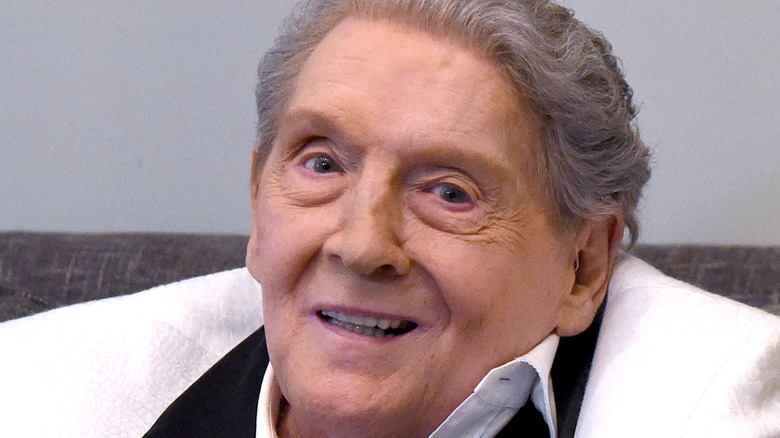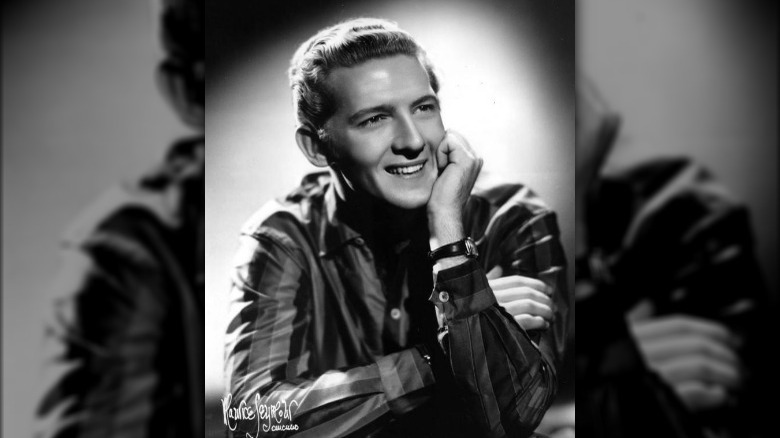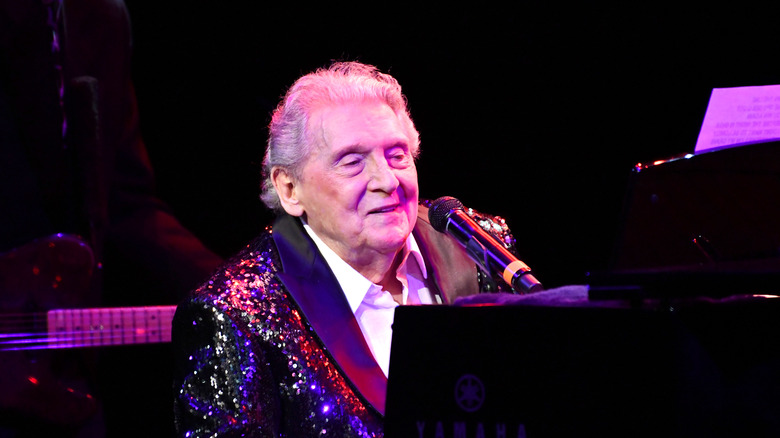Jerry Lee Lewis' Most Fiery Moment On Stage Might Be Pure Fiction
According to History, '50s-era rock 'n' roll innovator Gene Vincent sang "Be-Bop-A-Lula," and Little Richard shouted "Tutti Frutti" (posted on YouTube). For his part, Jerry Lee Lewis — who died October 28, 2022, at the age of 87, per CNN — had "Goodness gracious great ball of fire!" from his hit "Great Balls of Fire," released in 1957.
In addition to a number of hit singles, one memorable moment in Lewis' long career allegedly happened in 1958 when, while on tour with Chuck Berry, he seemed to take his own words to heart and set his piano on fire to end his set, as The Guardian explains. That alleged moment is now etched in history. It's even included in the 1989 Lewis biopic "Great Balls of Fire!", with Dennis Quaid starring as the influential rock musician (via IMDb). Did Lewis actually perform that stunt, though? As Outsider notes, the answer to that question depends a lot on who you ask.
Lewis was reportedly jealous that Berry was the tour headliner
On that 1958 tour when the flaming-piano incident purportedly happened, Jerry Lewis was allegedly jealous that Chuck Berry was the tour headliner, based on 2014 GQ reporting. It's said that in response, Lewis lit his piano on fire, and as he walked off stage, he taunted Berry by saying, "Follow that," referring to the spectacle. From there, the story only grew — in some versions, he played all his shows on a piano in flames, while others claimed he ended each show from then on with a keyboard set alight, as Outsider explains.
Rock history is littered with myths and legends, and to get to the truth of what actually happened that night in 1958, GQ went straight to the source: Lewis himself, to which he responded, "Yeah, that happened ... Coke bottle, gasoline in it." The problem is that in other instances, Lewis said he didn't.
Lewis calls the flaming piano story 'baloney' ... or does he?
The mixed messages about whether or not Jerry Lewis did light a piano on fire also come from his bassist, J.W. Brown, who was there the night it is said to have happened. Also speaking with GQ in 2014, when asked about the story's veracity, Brown said (via GQ), "No. He ain't never set no piano on fire." Brown added: "He tore a lot of them up." That myth, according to Brown, got started when flames were rigged to ignite as Lewis sang his hit song on TV.
So why does Lewis sometimes say it happened and sometimes claim it didn't? As GQ notes, Lewis himself said this to Blender magazine in 2009: "I never did — that's a bunch of baloney." So why not tell the truth? According to Lewis, the flaming piano story is just "what people want to hear."


